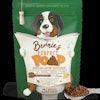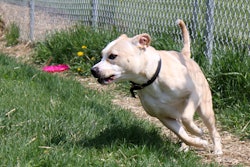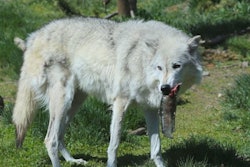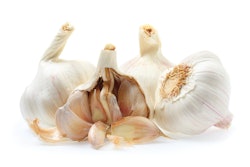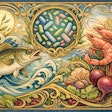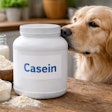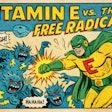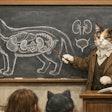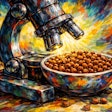
Insect-based pet food ingredients may offer alternative protein and oil sources to those derived from vertebrates. Six-legged livestock tend to require fewer resources to produce than animals with two, four or even no legs. Because insects tend to require less food, water and land than other animals to produce comparable amounts of protein, some in the pet food industry have turned to insects as a sustainable ingredient source. Likewise, animal welfare advocates tend to be less concerned with squirming creatures with multiple eyes than doe-eyed cattle or clever pigs. With rising use of insects in pet food comes the need for more research on how different species influence pet health. Beyond macronutrients some scientists have examined how insect-based ingredients influence the communities of microbes living within dogs’ guts.
Research on insect-based ingredients effects on dog gut microbiome
In the journal Veterinary World, researchers at Kasetsart University in Bangkok, Thailand, published the results of their study exploring the effects of insect-based diets on the gut microbiota of dogs. The researchers investigated the substitution of poultry meal with house cricket (Acheta domesticus) or mulberry silkworm pupae (Bombyx mori ). The dogs’ gut microbiome was the focus of the investigation, aiming to shed light on the potential effects of insect-based diets.
The study, conducted over 29 days with 15 healthy adult mixed-breed dogs, utilized a randomized block design with five experimental dietary groups. These groups included:
- control diet made with poultry meal
- 10% house cricket substitution
- 20% house cricket substitution
- 7% mulberry silkworm pupae substitution
- 14% mulberry silkworm pupae substitution
Fecal samples collected on days 14 and 29 were analyzed for bacterial community structure using ribosomal ribonucleic acid gene sequencing. At the phylum and genus levels, the researchers observed generally similar microbiota and diversity among all treatments. The diets containing insects did not significantly alter the major phyla in the gut microbiome of dogs.
However, some significant changes were noted in the relative abundance of bacterial genera. Dogs fed higher levels of mulberry silkworm pupae experienced reductions in Allobaculum and Turicibacter levels. Meanwhile, dogs fed a lower level of house cricket showed a decrease in Turicibacter compared to the control group.
Notably, Corynebacterium and Lactobacillus levels increased significantly in dogs fed 14% mulberry silkworm pupae compared to the control group.
“These findings suggest that insect-based diets may slightly alter the gut microbiota of dogs,” the researchers wrote in their conclusions. “Further research is needed to fully understand the mechanisms by which insect-based diets influence the gut microbiota of dogs and the longterm potential health implications.”


